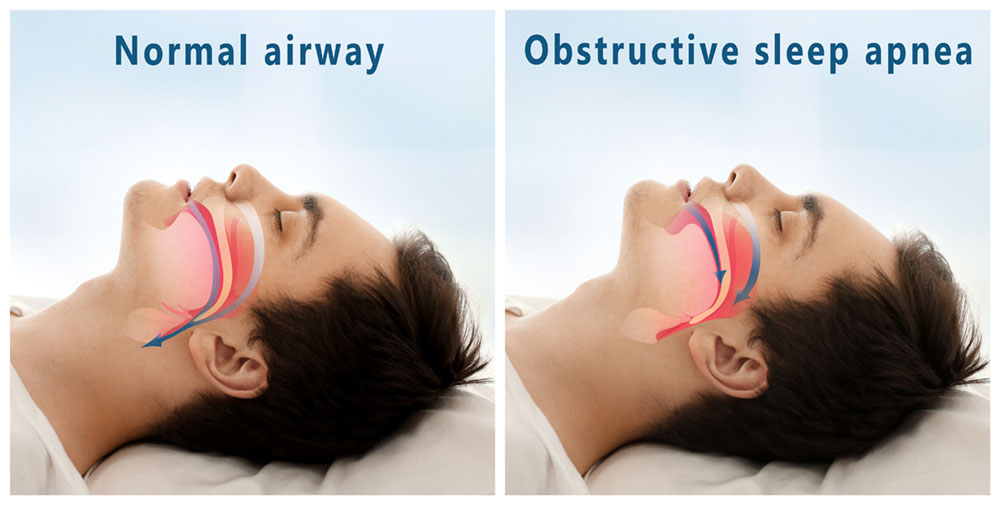How to Tell If You Suffer From Sleep Apnea
Sleep apnea is more common than most people realize. The disorder is characterized by sleep patterns with pauses in breathing or shallow breathing which can disrupt their quality of sleep and daytime energy.
The most common symptoms to look out for include:
- Loud, unusual snoring
- Choking or gasping for air at night
- Fatigue and irritability
- Headaches that last longer than a day
- Insomnia
- Dry mouth upon awakening
- Trouble focusing during the day
- Frequent urination during the night
In order to know for sure if you have a sleep disorder, we recommend you seek a sleep study before pursuing treatments. By doing so, your sleep physician can officially diagnose your sleep apnea or determine whether it’s another condition. If you’re unaware of where to go for a sleep study, contact our Spring Hill office and we can put you in contact with one.

The Types of Sleep Apnea

Sleep apnea causes a sufferer to stop breathing during their sleep. There are three different types of sleep apnea– obstructive, central, and complex. The most common is obstructive sleep apnea (OSA) where the soft tissues in the back of the throat relax and block the airway.
The airway slowly closes and ultimately interrupts the flow of oxygen from entering into your lungs which signals the brain and body to wake up. Many times, this awakening is so brief that sufferers don’t even remember it the next day. However, it can occur up to 30 times or more every hour, preventing patients from reaching deep sleep.
Central and complex sleep apnea are far less common where either the brain fails to send signals to your breathing muscles or where the patient suffers from a combination of both OSA and CSA.
Risk Factors for Sleep Apnea
There are some common risk factors that have led to sleep apnea for different patients, based on various characteristics and lifestyle choices. Some of these include:
- Large tongue or tonsils: These two body parts can obstruct the throat when a patient is lying down and is typically a result of genetics.
- Weight: Overweight patients have extra soft tissue around the walls of their windpipe, which can narrow the inside and made it harder to breathe.
- Shape or size of head and neck: Sometimes, patients simply are born with a smaller airway that increases the chances of acquiring sleep apnea.
- Age: As you age, it can become gradually more difficult for your brain’s signals to keep your throat muscles stable while you sleep. Therefore it can become more difficult to breathe as you sleep.
- Gender: Although it doesn’t only apply to one gender, men are two to three times more likely to suffer from sleep apnea than women.
- Alcohol and tobacco use: Alcohol relaxes the muscles in the throat which can increase the chances of OSA. Smokers are three times more likely to have OSA because it increases the amount of inflammation and fluid retention in the upper airway.

The Importance of Quality Sleep
Sleep apnea is a debilitating condition that can have a negative impact on your mood, ability to sleep, and can increase your risk of health issues. Untreated sleep apnea has been closely associated with complications such as heart disease, strokes, type 2 diabetes, depression, high blood pressure, and liver problems.
If you’ve been suffering from sleep apnea, then you understand how difficult it can be to achieve a good night’s sleep. It’s vital for your wellbeing that you seek proper diagnosis and treatment once it’s discovered before your health risks worsen.
Call our office today if you need help finding a sleep specialist to detect your condition. Once you have, you can schedule your consultation with Dr. Robinette to receive safe and effective sleep treatments.
